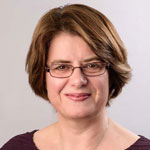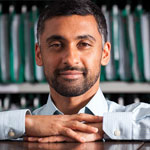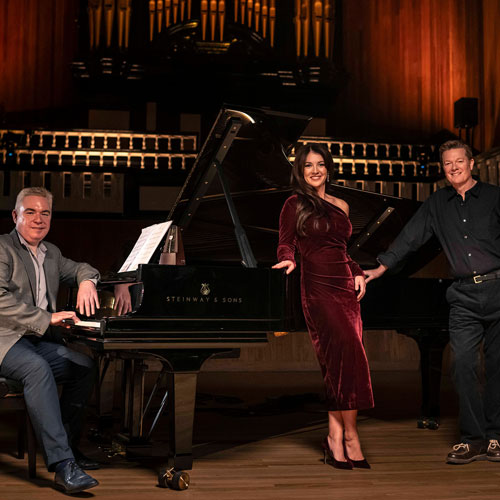About the campaign
About one in three patients are now waiting over two months to start cancer treatment following an urgent GP referral with one in six waiting more than 90 days, according to new research for Zurich by Professor Hackshaw at the UCL Cancer Institute.
Two thirds of patients say waiting for treatment is the hardest part of having cancer, and half say their anxiety spiked while stuck in this period of limbo. The ‘About Time’ campaign sets out to shine a light on the additional challenges waiting times create for cancer patients.
Watch the moving performance ‘About Time’ created by cancer-beating opera singers
Zurich has collaborated with a trio of cancer-surviving operatic musicians to create a performance which symbolises the stress and worry felt whilst waiting for cancer treatment. Soprano Monica McGhee composed the operatic score called ‘About Time’, performed with tenor Toby Spence and pianist Lee Michael Walton. The performance aims to give voice to the 77,000 people waiting more than two months for cancer treatment each year, following their GP referral.
Monica McGhee
35-year-old Scottish soprano Monica McGhee discovered a lump in her throat while warming up for a concert aged just 28.
“There is no easy way of dealing with the crushing news you might have cancer, especially when it threatens one of your reasons for living. As an opera singer, I am fortunate to still have a career after discovering a tumour in my throat and will be eternally grateful for the swift surgery and effective treatment that put me on the road to recovery. Tragically, that isn’t the experience of 77,000 people in the UK every year, which is why I felt compelled to lend my voice to anyone who feels unheard, and unseen, at such a difficult time.”
Toby Spence
55-year-old English tenor Toby Spence is also a survivor of thyroid cancer, having undergone ground-breaking surgery to remove his glands and several lymph nodes around his neck in 2012. Approaching the peak of his international career, Toby had no time to savour his success after being diagnosed with thyroid cancer the night after a standing ovation.
“I went into total shock. About three months previously, I’d noticed that I was having trouble clearing my throat, and that when I sang there was a sensation like a slowly tightening vice. I went to the doctor, who signed me up for some routine tests. Three months later, on the NHS, I got a diagnosis that I hadn’t been expecting.”
Lee Michael Walton
Pianist Lee Michael Walton received his cancer diagnosis in 2006, when a tumour known as chondrosarcoma was found in the bone of his face. He had several complex – and at the time revolutionary – operations on his mouth and face, leaving him unable to speak. Determined to recover, Lee underwent extensive speech therapy and vocal training and has since been able to write, record and release original music inspired by his cancer journey.
“Waiting seven months for my cancer treatment was one of the most challenging experiences of my life. Given the unusual location of my tumour, there were a lot of complexities to consider before settling on the best treatment plan for me,”
Lee said: “Ultimately, it was decided I would undergo facial reconstruction surgery, which involved using bone and skin from my leg – a procedure that took 15 surgeons 21 hours, and the highest level of planning and precision. While the wait was difficult, I’ve come to understand it was necessary to ensure the best possible outcome after the surgery.”

Find out more about Accelerate
Zurich’s Accelerate proposition offers virtual consultations, private diagnostic tests, second medical opinions, precision cancer medicine, access to treatment abroad and support with cancer clinical trials in the UK and abroad. Accelerate is available as an optional addition to Zurich’s Life insurance, Critical Illness or Income Protection policies.

Nicky Bray, Chief Underwriter at Zurich UK
“We are very lucky to have an NHS service in the UK, but the reality is, cancer is a waiting game, regardless of the challenges faced by the NHS. While many people are receiving a quick diagnosis and treatment, there are many factors influencing this - one of which is regionality. A cancer journey is not a linear path and there is no beginning middle or end. You wait for a diagnosis, then for treatment, then you wait to see if it has worked. Then for some, it’s about waiting for five years of remission as this changing disease could of course come back. With or without NHS delays, you’re always waiting for news which causes significant distress.”

Professor Allan Hackshaw, Director of the UCL Cancer Institute and Cancer Trials Centre
“There is hope. We stand on the cusp of a revolution in cancer treatment, with precision oncology and access to effective targeted treatments, as well as modern immunotherapies, offering promise for millions around the world. These improvements will save lives, but access is key. It is really encouraging to see companies like Zurich helping to bring these improvements to more people with advanced cancer.”
